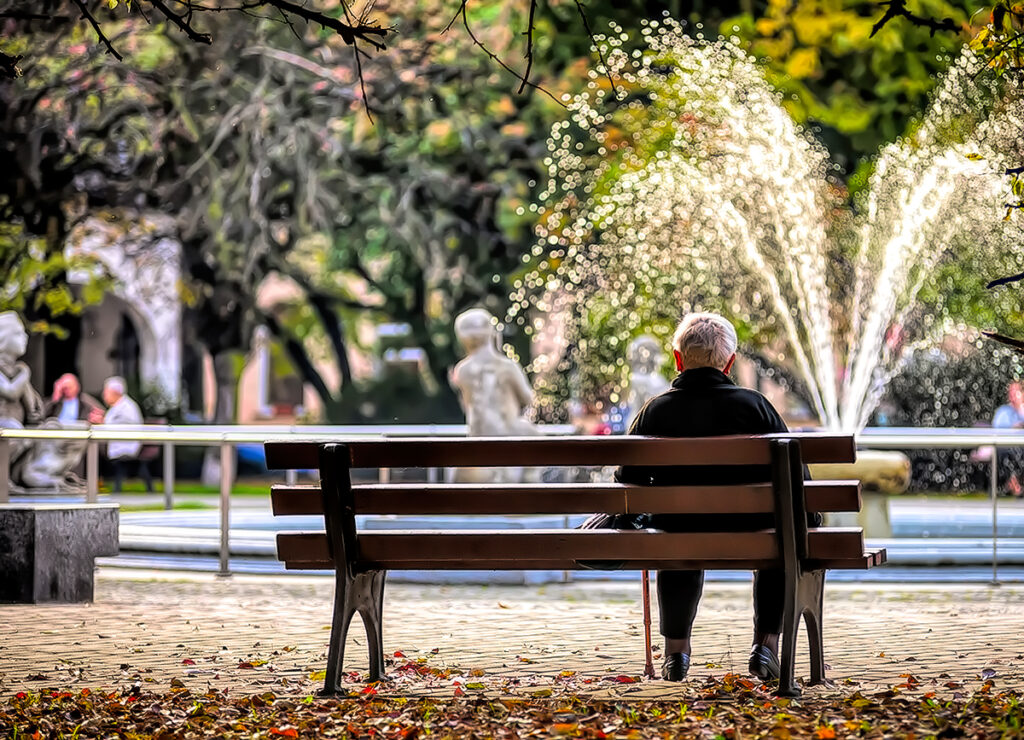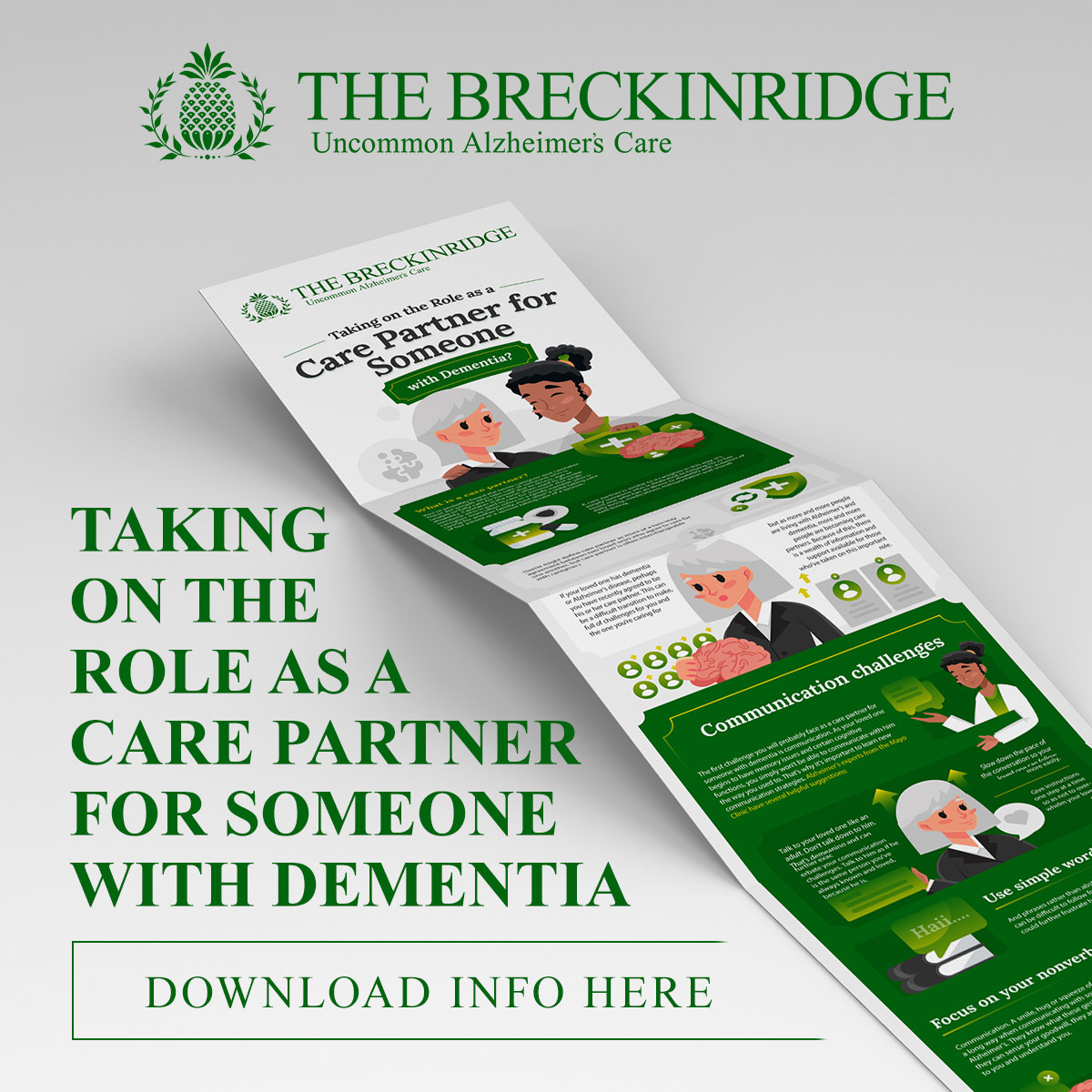Dementia: The Loneliest Disease

Dementia: The Loneliest Disease
Dementia does more than take your memory. It can take your friends, your family and your purpose. The stigma related to the disease as well as the symptoms of the disease itself can cause those who are living with dementia to feel isolated, even when surrounded by people.
Susan Frick, a social worker with the Rush Alzheimer’s Disease Center, has been working with people living with early-onset Alzheimer’s for 18 years. In her time working with this community, she’s noticed a common symptom not often talked about with dementia and Alzheimer’s: loneliness.
In her TEDx Talk “Loneliness and Alzheimer’s Disease”, Frick shares that her clients often feel like they’re in a pit or a hole, a place where they’re alone, where people can’t see them and sometimes ignore them.
This can be true for caregivers too. As the disease progresses, she explains, caregivers often feel like it is just them and the person they’re caring for. The rest of their community seems to drift away.
Dementia and Alzheimer’s don’t have to be such isolating experiences, and they shouldn’t. Research shows that social interaction is good for those who are living with dementia and can even help slow their symptoms.
In her TEDx Talk as well as an interview with Dementia Untangled, Frisk offers explanations and advice for how families and friends can better understand the loneliness that comes with dementia and what they can do about it.
Why does dementia cause loneliness?
Frick explains that dementia causes loneliness on two levels: the disease level and the stigma level.
1. The Disease Level
Dementia causes cognitive decline, which affects memory, speech, attention, skills, the ability to perform activities of daily living, etc. Not being able to follow a conversation, complete a task or do the things you once did is a difficult experience that can cause shame, anger, anxiety and even depression. Many people who are living with dementia will naturally want to disengage socially due to the shame associated with these symptoms.
2. The Stigma Level
Frick says that her patients have talked to her about how they were treated differently by their friends and family almost immediately upon their diagnosis. People stopped speaking directly to them. They stopped inviting them to things, asking them for help or advice. People avoid what they don’t understand, and the majority of the population doesn’t fully understand dementia and Alzheimer’s. Sadly, this means many friends and family will avoid someone they love who is living with dementia simply because they don’t understand what that person can and cannot do or can and cannot understand. This only causes further isolation for the one who is living with dementia and for that person’s caregiver.
Both of these types of loneliness, Frisk points out, can cause someone to lose her sense of purpose. When you are no longer able to do the things you once did, and when those you love stop calling or spending time with you, you can easily lose yourself. You no longer have purpose in your day. A sense of purpose, like social connection, is crucial to maintain if you are living with dementia. Without it, your disease can progress more quickly.
Share this Infographic Image On Your Site
<p><strong>Please include attribution to https://thebreckinridge.com/ with this graphic.</strong><br><br><a href="https://thebreckinridge.com/ways-to-stay-engaged-socially-with-dementia/"><img src="https://thebreckinridge.com/wp-content/uploads/2022/11/2-taking-on-the-role-as-a-care-partner-for-someone-with-dementia-thebreckinridge.jpg" alt="Taking on the Role as a Care Partner for Someone with Dementia" width="1200px"></a></p>How can friends and family reach out to those who are living with dementia?
If you have a friend, neighbor or relative who is living with dementia but you’re not sure how to reach out to that person, Frick offers a few suggestions:
1. Move past your discomfort.
If you haven’t spent time in the dementia community, it’s natural to feel uncomfortable around someone who is living with the disease, but Frick encourages people to not let their own discomfort prevent them from reaching out. Know that you will feel somewhat uncomfortable and that’s ok. The more time you spend with someone who is living with dementia, the more you will understand that person’s diagnosis and how it’s affecting them and the less trepidation you will have.
2. Don’t say “if there’s anything I can do…”
While friends and family mean well when they say something like, “If there’s anything I can do, let me know,” this often puts an additional burden on the caregiver. Caregivers have a lot on their plates. Figuring out how to ask for help or what to assign their well-meaning friends and family can feel like another task added to their lists.
Instead of asking what you can do, tell a caregiver what you will do. For example, offer to come over on Sunday afternoons and do a puzzle with the person who’s living with dementia or offer to grocery shopping with them once a week. Decide what social activity you can do and when and run it by the caregiver to make sure it’s appropriate.
3. Let their interests determine what you do.
Frick also suggests letting the person who is living with dementia lead as far as what social activity you will do together. That person has interests and hobbies. Do what he likes—activities that make him feel connected, calm and himself.
4. Get connected with Dementia Friends
Dementia Friends is an organization that helps educate the public about dementia and connect volunteers, or “friends,” with those who are living with dementia. You can learn more about the organization and how to become a friend here.
How can caregivers and those living with dementia get support?
If you are living with dementia or caring for someone who is, you already know how lonely and isolating it can feel. Frick facilitates support groups for those with early-onset Alzheimer’s. “There’s something healing about being around others who understand,” she says.
Support groups are full of people who are going through what you’re going through. They get it. They understand you. To find a support group near you, visit the Alzheimer’s Association website here.
Dementia is a lonely disease, but it doesn’t have to be. Get educated. Reach out to someone you know who is living with the disease. Perhaps more than any other condition, those who are living with Alzheimer’s need social connection. The more we can understand the disease, the better we can connect with the millions of Americans who are living with it.






